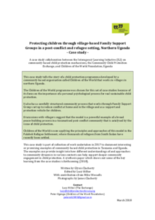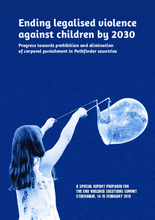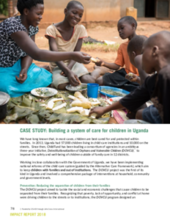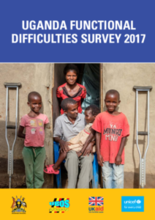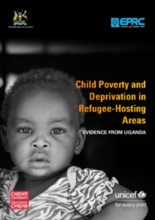This country page features an interactive, icon-based data dashboard providing a national-level overview of the status of children’s care and care reform efforts (a “Country Care Snapshot”), along with a list of resources and organizations in the country.
demographic_data
childrens_living_arrangement
children_living_without_bio
social_work_force
key_stakeholders
Key Stakeholders
Add New DataOther Relevant Reforms
Add New Datadrivers_of_institutionalisation
Drivers of Institutionaliziation
Add New Datakey_research_and_information
Key Data Sources
Add New DataThe Children Act (Uganda)
Country Care Review: Uganda
Prevalence and number of children living in institutional care: global, regional, and country estimates
The National Integrated Early Childhood Development Policy Action Plan (2016-2021) of Uganda
Catholic Care for Children in Uganda: A Family for Every Child - Findings from a Midterm Evaluation
Acknowledgements
Data for this country care snapshot was contributed by a consultant with the Data for Impact (D4I) Project at Palladium Group LLC.
Displaying 191 - 200 of 418
This case study tells the story of a child protection programme developed by a community-based organisation called Children of the World that works in villages in northern Uganda.
This article from the UNHCR, the UN Refugee Agency, shares the stories of unaccompanied minor refugees in Uganda and the hardships they have faced.
In this study Child Living Conditions which take on many dimensions are computed using the intrinsic value approach. The authors tested the hypothesis that the average living conditions of orphans were less than the average living conditions of non-orphans in Uganda in 2011.
Prepared for the Agenda 2030 for Children: End Violence Solutions Summit, held in Stockholm, Sweden, on 14-15 February 2018, this report tracks progress towards prohibition and elimination of corporal punishment of children in Pathfinding countries.
This special report from the Global Press Journal explains Uganda's recent "crackdown" on children's homes, highlighting the transition of one institution in particular, Hope Center Uganda, from a residential care home to a community center.
UNICEF is seeking a consultant to conduct a mapping of residential care facilities in Uganda.
In 2017, the USAID Displaced Children and Orphans Fund (DCOF) of the United States Agency for International Development (USAID) engaged the USAID-funded MEASURE Evaluation to build on and reinforce progress in advancing national efforts on behalf of children who lack adequate family-based care in Uganda.
This case study from ChildFund's 2018 Impact Report describes the Deinstitutionalization of Orphans and Vulnerable Children (DOVCU) initiative in Uganda, which aims to to improve the safety and well-being of children outside of family care.
The sections in this report provide an analysis of Uganda’s disability policy and legislative framework and how it is implemented, and emphasizes the need for sound research for development, including statistics.
This study assessed child poverty, deprivation and social service delivery in refugee and host communities in selected districts in the country’s three major refugee-hosting areas: West Nile, a sub-region of Northern region that borders South Sudan; the country’s South West, which borders the DRC and Rwanda; and the capital, Kampala.

